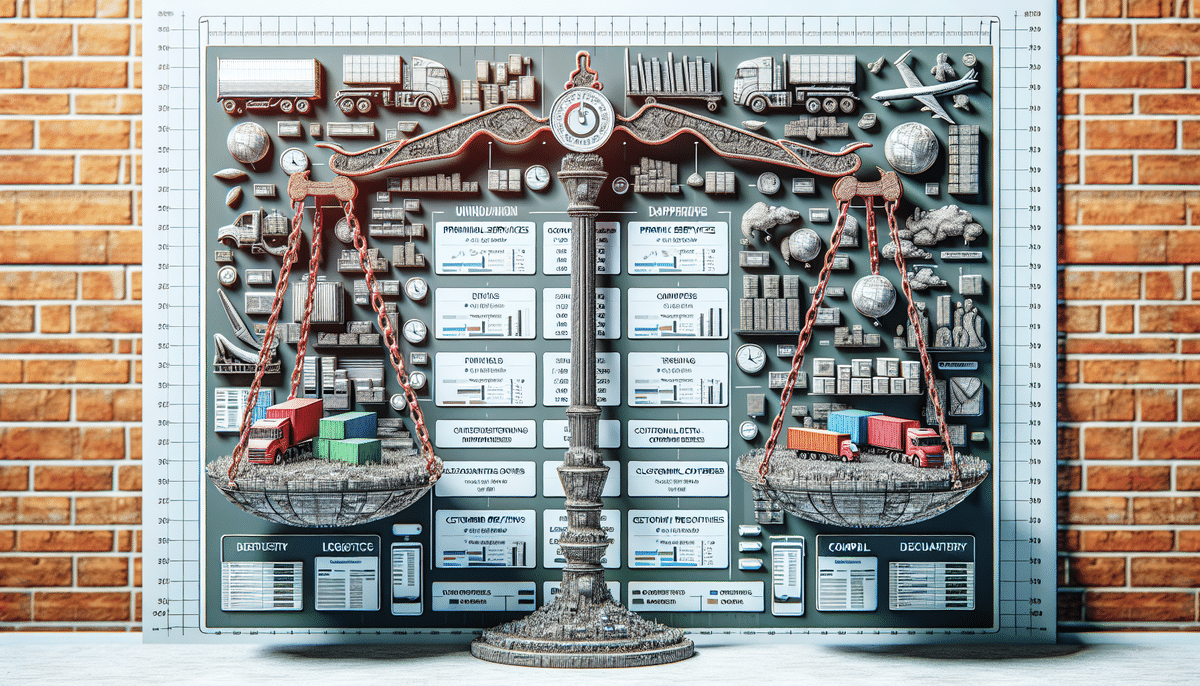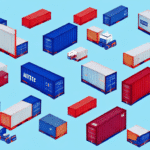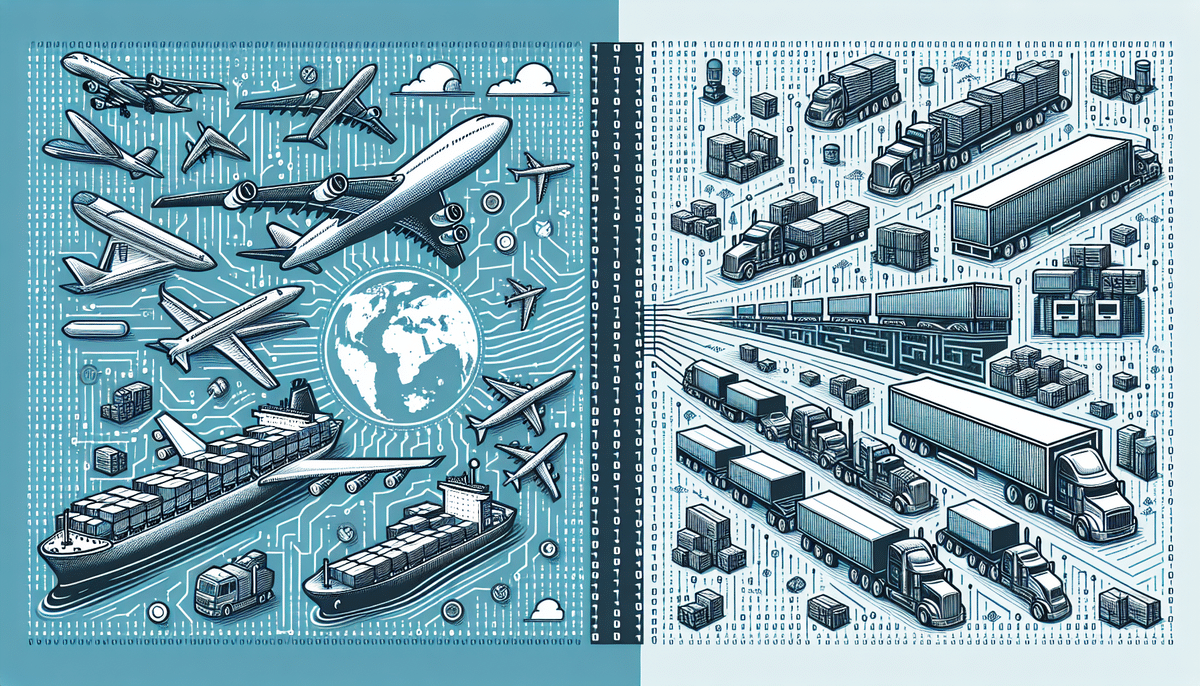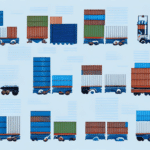Choosing the Right Logistics Partner: DCL Logistics vs. Flexport
In the competitive landscape of logistics and freight forwarding, selecting the right partner can significantly impact your business's efficiency and success. Among the myriad of options available, DCL Logistics and Flexport emerge as prominent contenders. This comprehensive comparison delves into their services, pricing, customer support, technology, and more to help you make an informed decision tailored to your business needs.
Comprehensive Services Offered
DCL Logistics
- Warehousing and Fulfillment: Strategically located facilities across the US ensure efficient storage and distribution.
- Transportation and Freight Management: Reliable transportation solutions tailored to various shipment types.
- Supply Chain Consulting: Expert advice to optimize your supply chain operations.
- E-commerce Fulfillment and Returns Management: Specialized services catering to online businesses.
- Value-Added Services: Including kitting, assembly, and reverse logistics.
Flexport
- Ocean, Air, and Truck Transportation: Comprehensive transportation options for global shipping needs.
- Customs Brokerage: Ensuring smooth customs clearance processes.
- Warehousing: Flexible storage solutions integrated with transportation.
- Trade Financing and Cargo Insurance: Financial services to support international trade.
- Proprietary Technology Platform: Real-time insights and analytics for supply chain visibility.
Both companies offer robust services, but your choice depends on specific business requirements. For instance, businesses prioritizing comprehensive warehousing and fulfillment might lean towards DCL Logistics, while those seeking advanced technological integration may prefer Flexport.
Pricing Structures Compared
DCL Logistics
DCL Logistics provides customized pricing tailored to the unique needs of each client. Factors such as product type, storage requirements, and shipping volume are considered to deliver a personalized quote.
Flexport
Flexport adopts a transparent pricing model, offering a clear breakdown of costs for each service. Their pricing is typically based on a percentage of the total shipment value, providing businesses with upfront clarity on expenses.
According to a [2023 industry report](https://www.inboundlogistics.com), flexible and transparent pricing models are increasingly favored by businesses seeking predictable logistics costs.
Customer Support Excellence
DCL Logistics
- Dedicated Account Managers: Personalized service with a single point of contact.
- 24/7 Support Line: Availability for urgent issues any time of day.
Flexport
- Expert Support Team: Responsive assistance for freight forwarding queries.
- Real-Time Shipment Updates: Enhanced transparency through live tracking and communication.
Both companies excel in customer support, but they cater to different preferences. DCL Logistics emphasizes personalized service, while Flexport integrates technology for efficient and responsive support.
Advanced Technological Integration
DCL Logistics
DCL utilizes a proprietary warehouse management system that offers real-time inventory data, order management, and shipment tracking. While efficient, it lacks the advanced analytics capabilities seen in newer platforms.
Flexport
Flexport's proprietary platform provides end-to-end supply chain visibility, leveraging data science and machine learning to optimize operations. Features include:
- Customs brokerage integration
- Transportation management systems
- Real-time tracking and analytics
This technological edge positions Flexport as a leader for businesses seeking data-driven insights and streamlined operations.
Studies from [Supply Chain Digital](https://www.supplychaindigital.com) highlight the growing importance of integrated technology platforms in enhancing supply chain efficiency.
Pros and Cons Analysis
DCL Logistics
- Pros:
- Comprehensive warehousing and fulfillment services
- Customized pricing models
- Dedicated and personalized customer support
- Cons:
- Limited advanced technology offerings
- Services may not cover complete end-to-end logistics solutions
Flexport
- Pros:
- Advanced, integrated technology platform
- Transparent and straightforward pricing
- Highly responsive and efficient customer support
- Cons:
- Primarily focused on freight forwarding services
- May not offer the same level of personalized service as DCL Logistics
Real-Life Case Studies
Soko Glam and DCL Logistics
Soko Glam, an e-commerce beauty retailer, partnered with DCL Logistics to manage their expanding logistics needs. DCL provided tailored warehouse management and fulfillment solutions, allowing Soko Glam to scale efficiently while maintaining high customer service standards.
Article and Flexport
Article, a furniture company, collaborated with Flexport to enhance their international shipping processes. Flexport's platform offered real-time visibility and streamlined customs management, significantly improving Article's operational efficiency across global markets.
These case studies underscore the strengths of each provider in addressing specific business challenges.
Expert Insights
Industry professionals offer valuable perspectives on the capabilities of DCL Logistics and Flexport:
- Andrew Johnson, CEO of Shelf Engine: "DCL Logistics provides exceptional customer service and support, which helps streamline our supply chain and enhance our customer experience."
- Edward Shen, Founder of Wave Commerce: "Flexport's technology platform has been transformational for our supply chain. The transparency and efficiency they offer have enabled us to scale our operations seamlessly."
Strategic Decision-Making: How to Choose
When deciding between DCL Logistics and Flexport, consider the following:
- Business Needs: Assess whether your priority is comprehensive warehousing or advanced technological integration.
- Budget Transparency: Determine if a transparent pricing model is essential for your financial planning.
- Customer Support Preferences: Decide if personalized account management or tech-driven support aligns better with your operations.
- Scalability: Evaluate which provider can better support your growth trajectory.
Aligning these factors with your business objectives will guide you toward the most suitable logistics partner.
Maximizing Operational Efficiency
- Clear Communication: Maintain open lines with your logistics partner to ensure expectations are understood and met.
- Leverage Technology: Utilize the technological tools provided by your logistics partner to gain insights and optimize processes.
- Regular Performance Reviews: Assess the performance metrics and address any areas needing improvement promptly.
- Flexibility: Be adaptable to changes and innovations in logistics solutions to stay competitive.
Final Thoughts
Choosing the right logistics partner is pivotal for any business aiming to enhance its supply chain efficiency and customer satisfaction. Both DCL Logistics and Flexport offer distinct advantages tailored to different business needs. By thoroughly evaluating their services, pricing, customer support, and technological capabilities, you can select the partner that best aligns with your strategic goals. Ultimately, the right choice will empower your business to navigate the complexities of global logistics with confidence and agility.




















